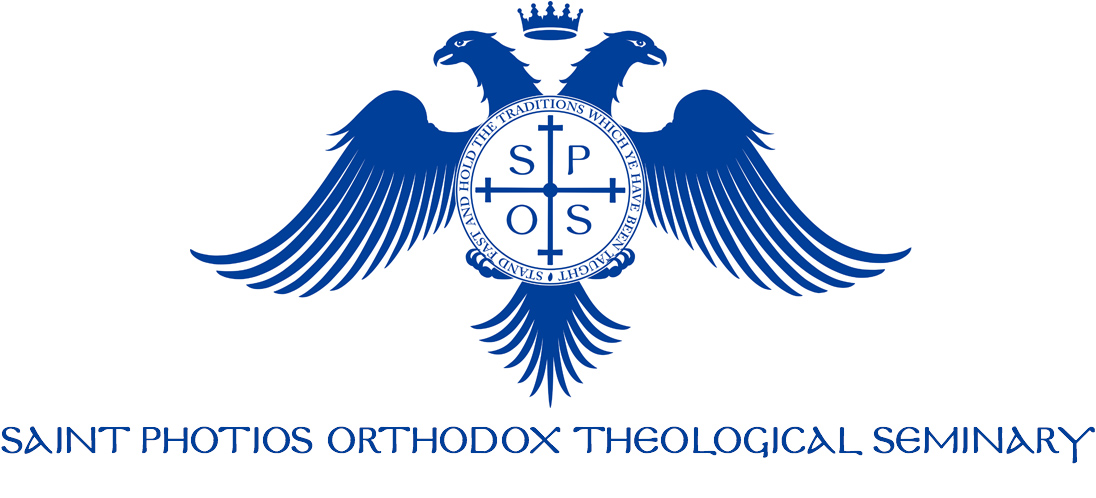The Office of Archbishop
- Details
- Created on Friday, 18 March 2011 04:25
On Tuesday September 22/October 5, 2010 the Holy Synod of the Genuine Orthodox Christians elected a new Archbishop. The announcement of the new Archbishop occurred in a peaceful and harmonious atmosphere amid fair procedures, contrary to the impious desires of those outside the Church.
The new Primate of the Church of the Genuine Orthodox Christians is the sixth in line after the schism of the innovators in 1924 and the first convocation of the Holy Synod in 1935. The succession of Archbishops is: Germanos (Maurommates) of Demetrias (1935-39), Chrysostomos (Kabourides) formerly of Florina (1939-1955), Akakios (Pappas) of Talantion (1960-1963), Auxentios (Pastras) of Athens (1964-1985) and Chrysostomos (Kiouses) of Athens (1986-2010). All of the aforementioned hierarchs of the non-innovating Orthodox Church in Greece bore the title of “Archbishop of the G.O.C.” even though the first three did not bear the title “of Athens” for various reasons. For example, in the articles of Chrysostomos, formerly of Florina in “The Voice of Orthodoxy” as well as in his books in the frontispiece we read:
“By His Excellency the Archbishop of the Genuine Orthodox Christians, the former Metropolitan of Florina Chrysostomos Kabourides”.
The title of Archbishop in Greece means the leader of the Bishops, in other words the head of the Synod. The hierarchs of each nation (i.e. a broad geographic territory) are obliged to recognize the First-Hierarch as the head according to the 34th Apostolic Canon. The Apostolic Canon relates to the time during which the Metropolitan system was in force. The Bishops of the cities of each Roman eparchy recognized as the First-Hierarch among them the Bishop of the capital of the eparchy, the Metropolis who also bore the title “Metropolitan”. Later in the broader geographic territories of Europe, Africa and Asia (which made up the Roman “Ecumene”) the Bishops of the respective capitals, of Europe: Rome, of Africa: Alexandria, and of Asia; Antioch presided over the Metropolitans. Later Constantinople and Jerusalem were added during the Patriarchal system. The rise of the political importance of a city also meant for the respective diocese its rise in the ecclesiastical order. A characteristic example is that of Constantinople.
Today in Greece it is absolutely normal and canonical for the First-Hierarch of Greece to be the Bishop of Athens, hence the Archbishop. For this reason all of the Primates of the Church of the G.O.C. of Greece have borne the title of Archbishop and have had their seat in Athens. However, the first three did not bear the title of the city of Athens because at that time they had hoped that possibly the innovating State Church would return to the path of Tradition. These hopes disappeared during the 1960’s, so since then the Genuine Orthodox Christians began to organize themselves better, seriously bearing in mind these parameters. For this reason, Auxentios who was originally ordained as the Bishop of Gardikion later took the title “of Athens” and Metropolitan Chrysostomos of Thessaloniki was elected Archbishop of Athens.
Similar examples exist in ecclesiastical history. In Constantinople, for example, during the Arian period, while the Arians had their own Archbishop (and also the favor of the Arian-minded Emperor) the Orthodox elected another Archbishop of Constantinople. St. Gregory Theologian himself was elected by the Orthodox flock of Constantinople and shepherded it as the Bishop of Sasima from 379 to 381, at which time at the first convocation of the 2nd Ecumenical Council he was named “of Constantinople”.
Today, when the Patriarchate of Constantinople and the New Calendar Church of Greece have been swallowed up by Ecumenism, the hierarchs of the Genuine Orthodox not only have the right but also an obligation to elect Orthodox Bishops in order to shepherd what remains of the Orthodox faithful of each ecclesiastical eparchy. The hierarchy of the Genuine Orthodox Christians has fulfilled this obligation by canonically electing Metropolitan Kallinikos of Achaia and all the Peloponnese the new Shepherd of the Genuine Orthodox Christians of Athens.
Translated from the GreekOrthodox Awareness
(Ψευδο) Προφητείας Παϊσίου το ανάγνωσμα...
Εις την εφημερίδα «Ελεύθερην Ώραν» της 6-8-2009 (ν.η.) ανγράφεται το ακόλουθον δημοσίευμα υπό τίτλον «Ο Γράψας, ο Παϊσιος και η Προφητεία!»:
«Για τον στρατηγό Δ. Γράψα υπήρχε άλλη Προφητεία. Την φοβήθηκαν.
Από καιρό κυκλοφορεί η προφητεία του γέροντα Παΐσιου… Βέβαια, άλλο προφητεία, άλλο πραγματικότητα… Αλλά, κάπου υπάρχει μία άκρη! Read more...
Missions
Saints Peter and Paul Orthodox Mission, Tucson, Arizona
Saints Peter and Paul Orthodox Church is a beautiful mission parish near downtown Tucson, a city in southern Arizona. It was started in 1997 by Father John Bockman, who was a missionary Priest formerly serving missions in Tennessee and Massachusetts since 1990. Father John served the faithful in Tucson and the surrounding area in his home Chapel until his repose in November of 2000. His wife, Presbytera Valerie, continued to make her home Chapel available for the mission, with clergy from Saint Nectarios Orthodox Church in Seattle and His Eminence, Metropolitan Moses of Toronto (then of Portland), visiting to provide the Divine Services.
Read more...Youth
2025 Youth Conference
Please join us for the 2025 youth conference in Toronto, Ontario, Canada! To learn more, visit the conference website.
Ask A Priest
Civil Annulment's Effect on Church Marriage?
Q. This concerns a U.S. marriage. If the marriage is civilly annulled, what is the effect upon the Church marriage? Is it also annulled? Read more...





